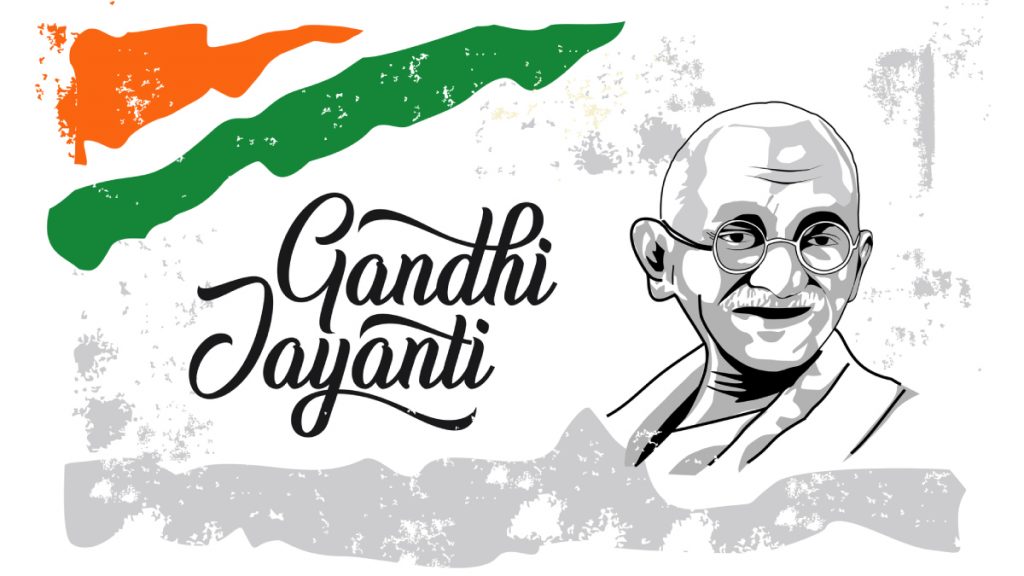Gandhi Jayanti or Mahatma Gandhi’s Birthday, celebrated on 2nd October each year, is one of India’s most revered national holidays. It commemorates the birth of Mohandas Karamchand Gandhi, fondly known as Mahatma Gandhi or Bapu, who played a pivotal role in India’s struggle for independence from British rule.
Gandhi is celebrated for his principles of non-violence (ahimsa), truth (satya), and civil disobedience, which became powerful tools in the fight for justice and equality. His legacy continues to inspire generations, not just in India but around the world.
Gandhi Jayanti / Mahatma Gandhi’s Birthday Dates for 2024, 2025, and 2026
Here are the dates for Mahatma Gandhi’s Birthday in the upcoming years:
The Significance of Gandhi Jayanti
Mahatma Gandhi’s Birthday, also known as Gandhi Jayanti, is an occasion to reflect on the ideals and values that Gandhi championed throughout his life. Born on 2nd October 1869 in Porbandar, Gujarat, Gandhi became a key figure in India’s freedom movement, leading numerous campaigns against British colonial rule through non-violent means. His philosophy of non-violence, truth, and tolerance earned him the title of “Mahatma,” meaning “great soul.”
Gandhi’s vision of a free and just society was deeply rooted in the principles of equality, simplicity, and self-reliance. He believed in empowering the masses through peaceful resistance and civil disobedience, and his leadership led to pivotal events like the Salt March and the Quit India Movement. Gandhi’s Birthday is a day to honour his contributions to the nation and his enduring message of peace, non-violence, and social justice.
How Gandhi Jayanti is Celebrated
Gandhi Jayanti is marked by a variety of events and activities that pay tribute to his life and legacy. The day is observed as a national holiday across India, and it is celebrated with reverence and respect.
- Prayer Services and Tributes: Prayer services and tributes to Gandhi are held at various locations across the country, including at his memorial, Raj Ghat, in New Delhi. Government officials, political leaders, and citizens gather to offer floral tributes and participate in prayer meetings. Gandhi’s favourite hymns, such as “Vaishnav Jan To” and “Raghupati Raghav Raja Ram,” are sung in his honour.
- Promoting Non-Violence and Peace: Gandhi Jayanti is recognised globally as the International Day of Non-Violence. On this day, various events and programmes are organised to promote the values of non-violence, peace, and social harmony. Educational institutions, NGOs, and government bodies host seminars, workshops, and discussions to spread Gandhi’s message of peaceful conflict resolution and justice.
- Swachh Bharat Abhiyan: In recent years, Mahatma Gandhi’s Birthday has also been associated with the Swachh Bharat Abhiyan (Clean India Mission), a campaign launched by the Indian government to clean public spaces and improve sanitation across the country. Volunteers, including school children, government employees, and citizens, participate in cleanliness drives to honour Gandhi’s vision of a clean and self-reliant India.
- Cultural Programmes and Documentaries: Schools, colleges, and cultural institutions organise events that celebrate Gandhi’s life and ideals. These include skits, plays, and recitations of his speeches and writings. Documentaries and films about Gandhi’s life and the Indian independence movement are also aired on television to educate and inspire the public.
Gandhi Jayanti in Different Parts of India
While Gandhi Jayanti is a national holiday celebrated across India, some regions hold particularly significant events.
- Raj Ghat (New Delhi): Raj Ghat, where Mahatma Gandhi was cremated, is the focal point of Gandhi Jayanti celebrations in New Delhi. Political leaders, including the President and Prime Minister of India, pay homage to Gandhi by offering prayers and laying wreaths at the memorial. The site is adorned with flowers, and a sense of solemnity prevails as people gather to remember Gandhi’s legacy.
- Porbandar (Gujarat): Porbandar, Gandhi’s birthplace, witnesses grand celebrations on Gandhi Jayanti. The Kirti Mandir, Gandhi’s ancestral home, is a place of pilgrimage for many who wish to pay their respects. Prayer meetings, seminars, and cultural events are held to celebrate his life and teachings.
- Mumbai (Maharashtra): In Mumbai, Mani Bhavan, the place where Gandhi lived for 17 years, becomes the centre of Gandhi Jayanti celebrations. The day is marked by prayer meetings, exhibitions, and discussions on Gandhi’s contribution to the independence movement and his philosophy of non-violence.
Gandhi Jayanti – A Day of Reflection and Action
Gandhi Jayanti is not only a day to honour the Father of the Nation but also a time to reflect on his teachings and apply them to contemporary issues. Gandhi’s principles of non-violence, truth, and simplicity are as relevant today as they were during his lifetime. His life serves as a guide for how individuals and nations can resolve conflicts peacefully, promote justice, and uplift the marginalized.
On Gandhi Jayanti, Indians reaffirm their commitment to building a society based on the values that Gandhi cherished – equality, non-violence, and social harmony. The day inspires individuals to take action in their own lives, whether through acts of kindness, participation in cleanliness drives, or simply living by the principles of truth and integrity.
Popular FAQs about Gandhi Jayanti
Is Gandhi Jayanti a public holiday in India?
Yes, Gandhi Jayanti is a national public holiday in India, observed on 2nd October each year. Schools, government offices, and businesses are closed as the nation honours the legacy of Mahatma Gandhi.
Why is Gandhi Jayanti celebrated in India?
Gandhi Jayanti is celebrated to commemorate the birth of Mahatma Gandhi, the leader of India’s independence movement and a global symbol of non-violence, truth, and justice.
How is Mahatma Gandhi’s Birthday celebrated in India?
Gandhi Jayanti is celebrated with prayer services, tributes, cleanliness drives, cultural programmes, and discussions on Gandhi’s life and teachings. Major events are held at Raj Ghat in Delhi and other significant locations associated with Gandhi.
What is the significance of Gandhi Jayanti being observed as the International Day of Non-Violence?
Gandhi Jayanti is recognised as the International Day of Non-Violence by the United Nations. The day promotes Gandhi’s philosophy of non-violence and peace, encouraging individuals and governments to resolve conflicts without violence.

